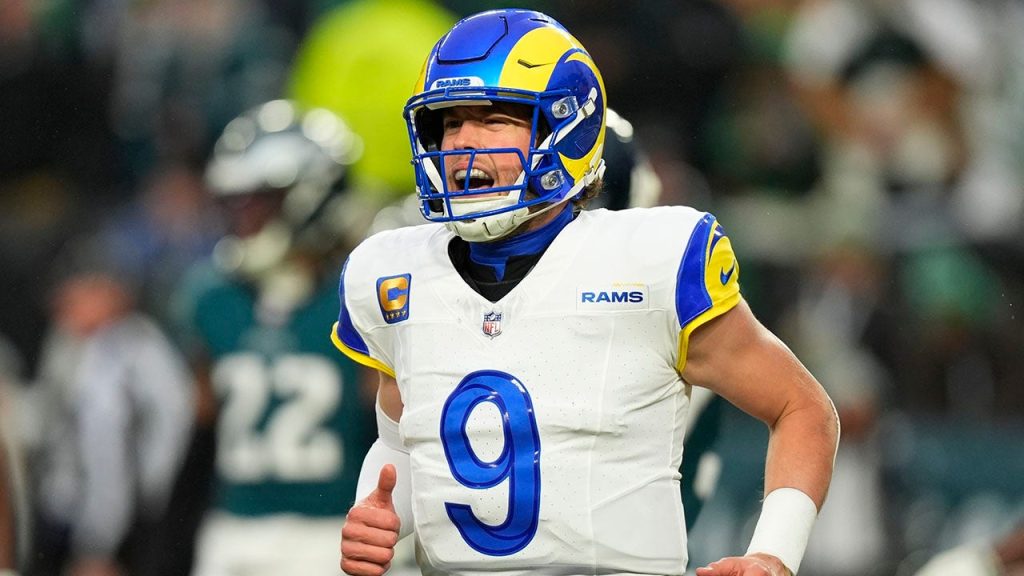Matthew Stafford’s performance in Sunday’s playoff loss against the Philadelphia Eagles, potentially his final NFL game, served as a poignant reflection of his distinguished career. Completing 26 of 44 passes for 324 yards and two touchdowns, Stafford demonstrated the resilience and skill that have defined his time in the league. However, the game also showcased the vulnerabilities that plagued the Rams throughout the season, particularly the two crucial fumbles – one by running back Kyren Williams and another by Stafford himself – that led to Philadelphia field goals, ultimately contributing to the Rams’ 28-22 defeat. This loss casts a shadow of uncertainty over Stafford’s future, leaving fans and analysts to speculate about the next chapter in the veteran quarterback’s career.
At 36 years old, with his 37th birthday looming in February, Stafford faces the inevitable question of retirement. While his post-game comments indicated a desire to continue playing, acknowledging his belief in still having “good football” left in him, the physical and mental demands of the sport weigh heavily on any aging athlete. His recent injury struggles, which forced him to miss a significant portion of the season, further complicate the decision. The wear and tear accumulated over years of high-level competition, coupled with the uncertainty of the Rams’ rebuilding process, will undoubtedly factor into Stafford’s contemplation.
Head coach Sean McVay, understandably focused on the immediate aftermath of the playoff exit, deflected questions about the future, emphasizing his appreciation for the team’s efforts throughout the challenging season. This reticence adds to the intrigue surrounding Stafford’s potential return. The Rams, facing a potentially significant roster overhaul, will need to assess their options at quarterback, considering Stafford’s age, injury history, and potential cap implications.
Despite the disappointing end to the season, Stafford’s performance against the Eagles showcased flashes of the brilliance that led the Rams to a Super Bowl victory just two years ago. His late-game drive, culminating in a touchdown pass to Colby Parkinson, demonstrated his ability to orchestrate the offense under pressure. Even the final drive, which ended in a turnover on downs, highlighted Stafford’s determination and competitive spirit, pushing the ball downfield in a last-ditch effort to tie the game.
Stafford’s legacy, regardless of his decision regarding next season, is firmly cemented in NFL history. From his prolific passing numbers to his Super Bowl triumph, he has proven himself to be a capable and resilient leader. His 2021 season, culminating in a Super Bowl victory over the Cincinnati Bengals, stands as a testament to his ability to perform on the grandest stage. His career statistics, including over 55,000 passing yards and nearly 400 touchdowns, place him among the league’s elite quarterbacks.
The upcoming weeks will be filled with speculation and anticipation as Matthew Stafford weighs his options. His decision, whether to return for another season or gracefully retire, will have significant repercussions for the Los Angeles Rams and the NFL landscape as a whole. His contributions to the game are undeniable, and his future remains a topic of great interest for fans and analysts alike. The question of whether Sunday’s game was his last will remain unanswered for the time being, leaving a lingering sense of uncertainty as the offseason unfolds. Regardless of his choice, Matthew Stafford’s impact on the game will be remembered for years to come.

